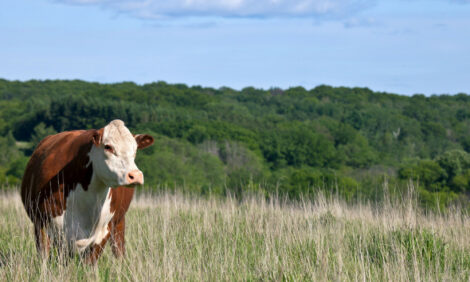



Grazing Impacts Cause for Concern, Report Says
US- Land managers should consider a reduction or in some places complete elimination of heavy grazers from public lands.
Eight researchers, lead by Porfessor Robert Beschta of Oregon State Univeristy, have suggested that climate change is causing additional stress to many western rangelands. As a result,in some locations, land managers are being urged to elimination of livestock and other large animals from public lands.
A growing degradation of grazing lands could be mitigated if large areas of Bureau of Land Management (BLM) and USDA Forest Service lands became free of use by livestock and “feral ungulates” such as wild horses and burros, and high populations of deer and elk were reduced, the report stated.
This would help arrest the decline and speed the recovery of affected ecosystems, they said, and provide a basis for comparative study of grazing impacts under a changing climate. The direct economic and social impacts might also be offset by a higher return on other ecosystem services and land uses, they said, although the report focused on ecology, not economics.
Their findings were reported today in Environmental Management.
“People have discussed the impacts of climate change for some time with such topics as forest health or increased fire,” said Professor Beschta, lead author of this study.
“However, the climate effects on rangelands and other grazing lands have received much less interest,” he said. “Combined with the impacts of grazing livestock and other animals, this raises serious concerns about soil erosion, loss of vegetation, changes in hydrology and disrupted plant and animal communities. Entire rangeland ecosystems in the American West are getting lost in the shuffle.”
Among the observations of this report
- In the western U.S., climate change is expected to intensify even if greenhouse gas emissions are dramatically reduced.
- Among the threats facing ecosystems as a result of climate change are invasive species, elevated wildfire occurrence, and declining snowpack.
- Federal land managers have begun to adapt to climate-related impacts, but not the combined effects of climate and hooved mammals.
- Climate impacts are compounded from heavy use by livestock and other grazing ungulates, which cause soil erosion, compaction, and dust generation; stream degradation; higher water temperatures and pollution; loss of habitat for fish, birds and amphibians; and desertification.
- Encroachment of woody shrubs at the expense of native grasses and other plants can occur in grazed areas, affecting pollinators, birds, small mammals and other native wildlife.
- Livestock grazing and trampling degrades soil fertility, stability and hydrology, and makes it vulnerable to wind erosion. This in turn adds sediments, nutrients and pathogens to western streams.
- Water developments and diversion for livestock can reduce streamflows and increase water temperatures, degrading habitat for fish and aquatic invertebrates. Grazing and trampling reduces the capacity of soils to sequester carbon, and through various processes contributes to greenhouse warming.
TheCattleSite News Desk


